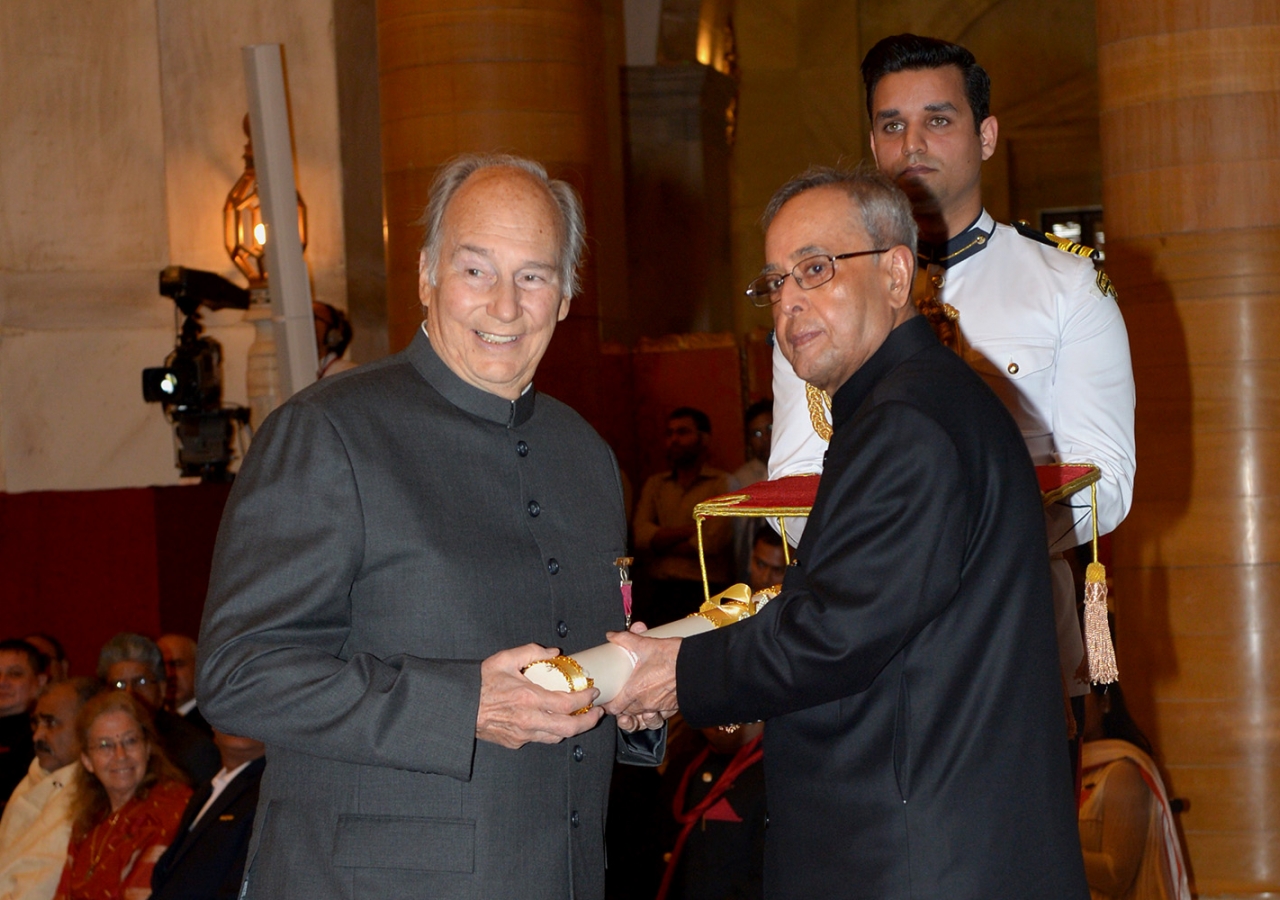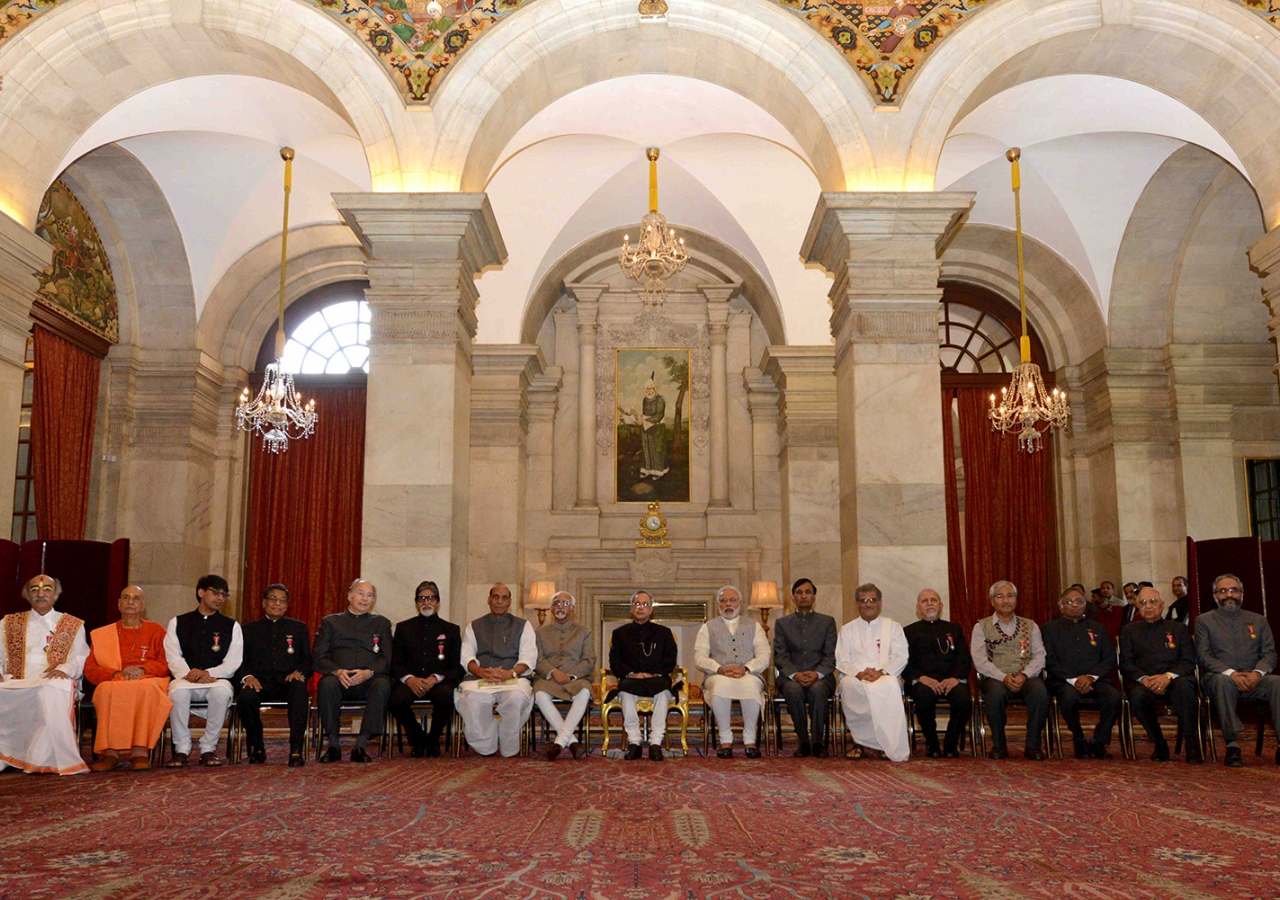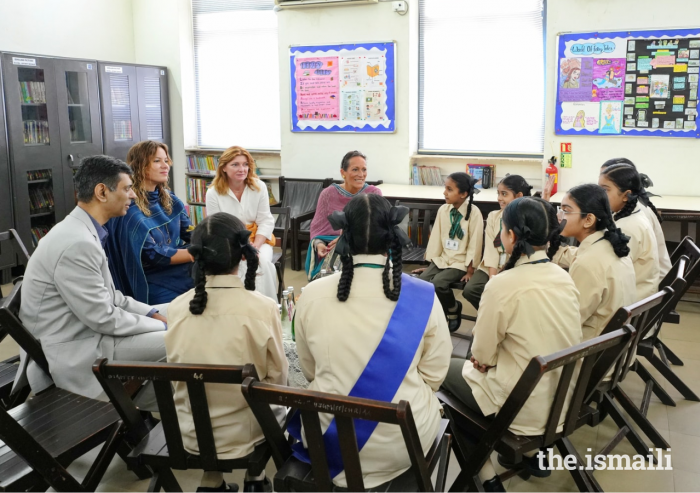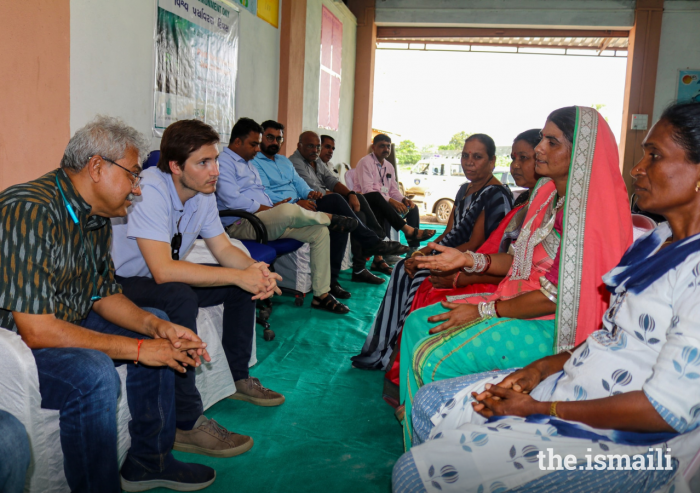New Delhi, 8 April 2015 — In a ceremony held today at the Rashtrapati Bhavan, the President of India, His Excellency Pranab Mukherjee bestowed upon Mawlana Hazar Imam the Padma Vibhushan, one of India’s highest civilian decorations.
EVENT: Mawlana Hazar Imam visits India to receive Padma Vibhushan
AKDN: Aga Khan Receives India’s Padma Vibhushan Award
WATCH: Award ceremony at the Rashtrapati Bhavan
Announced in January as part of the commemoration of India’s 66th Republic Day, the award recognises Hazar Imam’s contributions to social development in India. Actor Amitabh Bhachchan, philanthropist Dr D. Veerendra Heggade and renowned nuclear scientist, Dr M.R. Srinivasan were among the other honourees.
The Padma awards were instituted in 1954 to recognise individual achievements in a wide range of disciplines, as well as a recipient’s commitment to public service. The awards comprise three levels: Padma Shri is awarded for distinguished service; Padma Bhushan is for distinguished service of a high order; and Padma Vibhushan recognises exceptional and distinguished service.
The Ismaili Muslim community has a historic presence in India that goes back several centuries. During the Fatimid era some 1,000 years ago, representatives of the Ismaili Imams established economic and diplomatic relationships on the Indian subcontinent. The 46th Ismaili Imam, Mawlana Hasan Ali Shah Aga Khan I, settled in 1848 in Bombay (present-day Mumbai), which was also home for his son, Mawlana Ali Shah, and grandson, Mawlana Sultan Mahomed Shah, respectively the 47th and 48th Ismaili Imams.
Some of the oldest institutions of the Aga Khan Development Network in India date back to the time of Hazar Imam’s grandfather — including the Aga Khan School in Mundra, Gujarat, which was established by Mawlana Sultan Mahomed Shah in 1905. Today, AKDN institutions work closely with governments and communities to improve quality of life and advance India’s development priorities through cultural revitalisation, education, health care, drinking water and sanitation, rural development and enhancing access to finance for poor communities.
Mawlana Hazar Imam is presently in India for a week-long official visit. Yesterday, Hazar Imam and India’s Minister for Culture, Mahesh Sharma, presided over the foundation ceremony of a new site museum at the Humayun’s Tomb complex in Delhi. The museum is part of over a decade of pioneering cultural revitalisation and socioeconomic development projects undertaken by the Aga Khan Trust for Culture at Humayun's Tomb and more recently, at the Qutb Shahi Heritage Park in Hyderabad.









